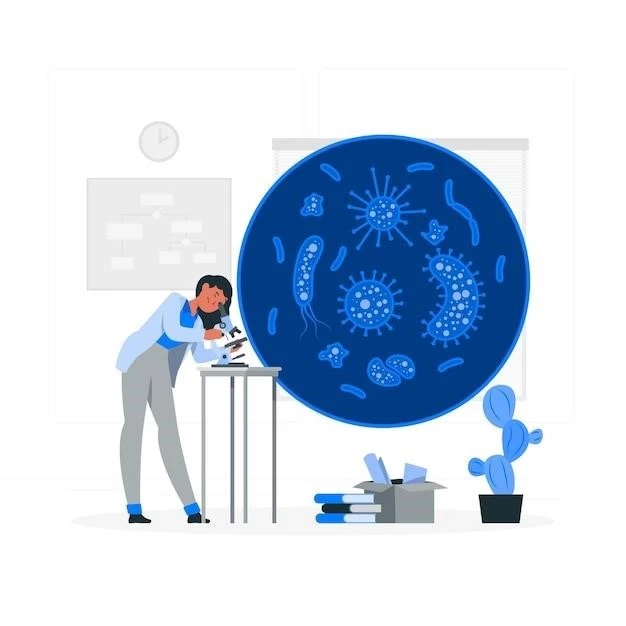Listeria Infection
Listeria monocytogenes, a type of bacteria, causes Listeriosis, a serious foodborne illness. Pregnant women, elderly, and immunocompromised individuals are at higher risk. Symptoms include fever, muscle aches, nausea, and diarrhea. In severe cases, it can lead to meningitis, sepsis, and pregnancy complications. Treatment involves antibiotics. Prevention through hygiene and proper cooking temperatures is crucial.
Introduction
Listeria monocytogenes is a bacterium that causes Listeriosis, a serious infection affecting many individuals globally. This pathogen is commonly found in soil, water, and some animals, making its presence possible in various foods. Listeriosis is a foodborne illness that poses a significant risk to specific groups, including pregnant women, the elderly, and those with weakened immune systems. The symptoms of Listeriosis can range from mild to severe, impacting the individual’s overall health and quality of life. Understanding the causes, symptoms, treatment options, and prevention strategies for Listeria infection is crucial in minimizing the risk of contamination and promoting public health.
Target Groups Vulnerable to Listeriosis
Individuals who are particularly vulnerable to Listeriosis include pregnant women, as the infection can lead to serious complications for both the mother and the fetus. The elderly are also at higher risk due to potential weakened immune systems. Additionally, those with compromised immune systems, such as individuals undergoing chemotherapy or with autoimmune disorders, are more susceptible to severe Listeria infections. Understanding the increased vulnerability of these specific groups is crucial in taking preventive measures to reduce the risk of contamination and adverse health outcomes.
Symptoms of Listeriosis
The symptoms of Listeriosis can vary but commonly include fever, muscle aches, nausea, and diarrhea. In pregnant women, symptoms may be mild but can lead to serious pregnancy complications. In more severe cases, individuals may experience headaches, confusion, and a stiff neck, indicating potential meningitis. Sepsis, a life-threatening condition characterized by the body’s extreme response to an infection, can also occur. Recognizing these symptoms and seeking prompt medical attention is crucial in effectively managing Listeria infection and preventing further complications.
Severe Manifestations of Listeriosis
In severe cases, Listeriosis can lead to serious manifestations such as meningitis, an infection of the membranes surrounding the brain and spinal cord. Meningitis can result in symptoms like severe headaches, stiff neck, and confusion. Sepsis, another severe complication, occurs when Listeria infection spreads throughout the body, leading to a potentially life-threatening response. Prompt medical intervention is essential in treating these severe manifestations of Listeria infection and preventing long-term health consequences.
Treatment Options
Antibiotics are typically used to treat Listeriosis. The choice of antibiotic may vary depending on the severity of the infection and the individual’s health status. In pregnant women, antibiotics are crucial to prevent complications for both the mother and the baby. In cases of severe Listeria infection, hospitalization and intravenous antibiotics may be necessary to effectively combat the bacteria and prevent further spread. It is important for healthcare providers to closely monitor the patient’s condition throughout treatment to ensure a successful recovery.
Prevention Strategies

Preventing Listeria infection involves practicing good hygiene and food safety measures. Properly washing fruits and vegetables, thoroughly cooking meat and poultry, and avoiding unpasteurized dairy products can help reduce the risk of contamination. Refrigerating leftovers promptly and keeping raw and cooked foods separate are essential in preventing the spread of Listeria bacteria. Individuals in vulnerable groups should take extra precautions when handling and consuming food to minimize the risk of infection. By following these prevention strategies, the likelihood of Listeria contamination can be significantly reduced, promoting overall public health.
Conclusion
In conclusion, Listeria infection, caused by the bacterium Listeria monocytogenes, can pose serious health risks, especially for vulnerable populations such as pregnant women, the elderly, and immunocompromised individuals. Recognizing the symptoms of Listeriosis, understanding the severe manifestations, and being aware of the available treatment options are crucial in effectively managing and treating this foodborne illness. By embracing prevention strategies such as proper hygiene practices and safe food handling techniques, individuals can minimize the risk of Listeria contamination. Continued education on Listeria infection and its prevention is vital in safeguarding public health and reducing the incidence of this potentially harmful disease.
